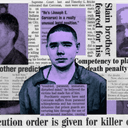
On May 25, 2023, 12 death-qualified jurors and six alternates were selected in the federal capital trial of Robert Bowers, who is charged with killing 11 worshippers at a Pittsburgh synagogue in 2018. Prosecutors struck all the Black, Hispanic, and Jewish venire members. As testimony begins on May 30, some victims’ family members have expressed support for capital punishment, while others have objected.
Seven of the nine families who lost a relative expressed support for the death penalty in a 2021 letter they sent to Attorney General Merrick Garland. On the other hand, the New Light and Dor Hadash congregations, including Rabbi Jonathan Perlman, who was wounded in the attack, and Miri Rabinowitz, whose husband was killed in the attack, urged Garland to forego the death penalty and instead seek a life sentence. A letter they sent to Garland explains the incompatibility of capital punishment with Judaism, stating “In Jewish tradition, courts imposing capital sentences have been viewed as bloodthirsty since the days of the sages.” The letter also states that a life sentence would honor the memory of victim Jerry Rabinowitz who had strongly opposed the death penalty.
Sentiments opposing the death penalty have “come from individuals of the congregations, elected officials, and others who think they know what’s best for the families,” said Diane Rosenthal, sister to victims David and Cecil Rosenthal. Michele Rosenthal added that “The suggestions published or reported that family members be relieved of the stress of a trial or that a cost-benefit analysis dictates a plea are offensive to our family.”
As part of the selection process for a death qualified jury, potential jurors were tasked with completing a 100-question, 26-page questionnaire. During voir dire, some jurors who had identified themselves as supporters of the death penalty on the survey hesitated when asked if they would be willing to sentence someone to death. One potential juror stated, “This person is still a human being. If I’m the person who has to make that decision on whether that person lives or I want them to be put to death? That’s tough.”
Meghan Schiller, Sisters of 2 Tree of Life victims say most families want death penalty, CBS News Pittsburgh, April 14, 2023; David Nakamura, Testimony begins in Tree of Life synagogue shooting trial in Pittsburgh, The Washington Post, May 30, 2023; Jury selection wraps in Pittsburgh synagogue massacre with testimony expected Tuesday, Associated Press, May 25, 2023; Megan Guza, The ‘heavy decision to take someone’s life’ has loomed over jury selection in the synagogue shooting trial, Pittsburgh Post-Gazette, May 8, 2023; Oliver Morrison, Jury is seated in synagogue shooting trial without any Black, Hispanic or Jewish jurors, 90.5 WESA, May 25, 2023


